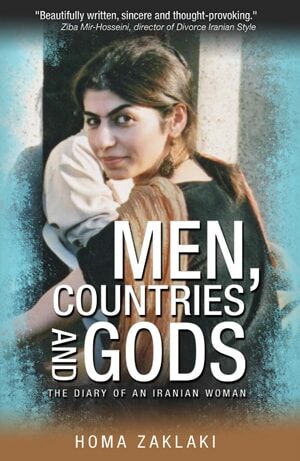
“This story of an Iranian woman’s journey in search of love, home and eventually herself is beautifully written, sincere and thought-provoking.”
Dr Ziba Mir-Hosseini, SOAS, Director of ‘Divorce Iranian Style’
Re
What if you know that somewhere along the road you have lost something, but you don’t remember what?
Solmaz doesn’t define herself only as a woman, Iranian and Muslim, but her world does — the world of men, countries and gods.
From this contrast arises a sense of unease that fuels her ambition as a doctor and her tormenting search for a ‘home’ across cultures and countries, in England, Austria and Bangladesh. Obsessed with defying the grip of her past, she is blind to the two primal forces that will eventually shatter her house of cards.
A word with our Mokhatab
“Need is not always a consequence of lack, a by-product of poverty; there are needs which are products of completion; what is beautiful is in search of native eyes that cherish it, what is abundant is in need of someone in need so that it can give; strength is in need of another strength in order to challenge it…and the heart that has words longs for a Mokhatab….” Dr Ali SHARIATI
One night we listened to two Iranian musicians, Kyhan Kalhore and Majid Khaldi, playing traditional Persian music at the Barbican in London. They performed for us, their audience, one would think; but as the evening went on, something else transpired. They didn’t seem entirely of this world. Their shut eyes, the ecstasy on their faces, the agility of their hands and the way they swayed their bodies made us wonder who they really were playing for. Whose image resided in Kayhan’s heart when his fingers breezed across the three strings of his kamanche? Who did Majid envisage listening to him as his whole being dissolved into his tonbac? Who was their Mokhatab, the one one speaks to?
Mokhatab is the eyes a dancer dances for, the ears a musician creates sounds for, the reader a writer writes for, the mind a scientist speaks to. Mokhatab is Kayhan’s kamanche and Majid’s tonbak. The music has always been in them, the instrument is merely the vehicle to lure it out of them. A Mokhatab is that instrument. A Mokahatab is a co-creator.
In the same vein, we are inviting you to be our Mokhatab.

